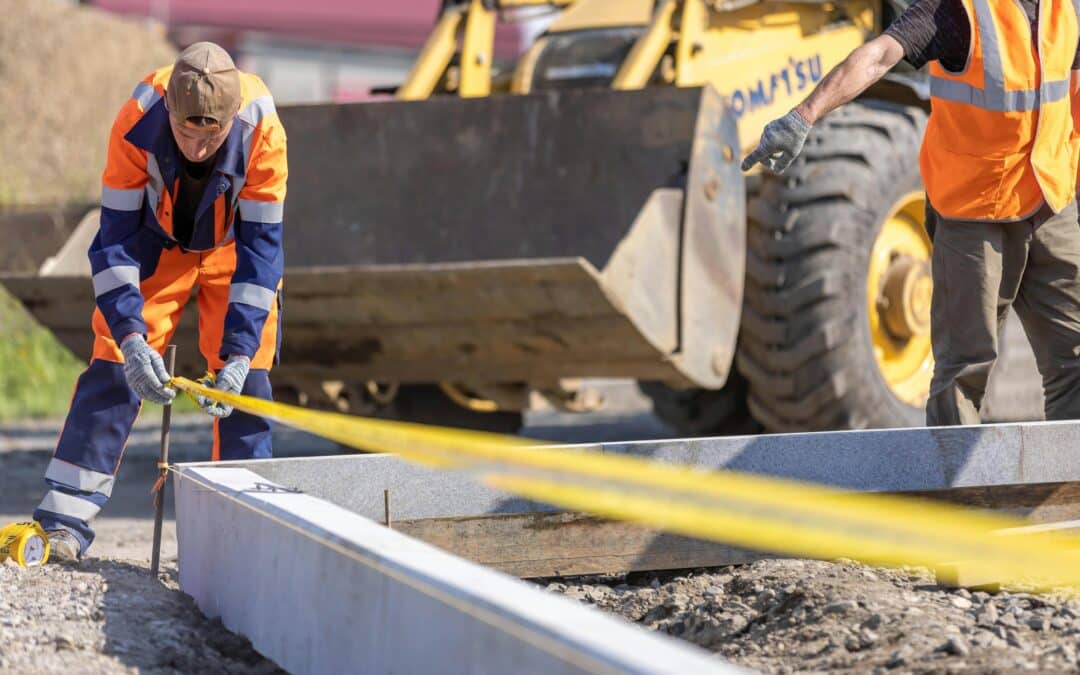Undertaking wet utility work—like water, sewer, or storm drain installation—in Boise Metro requires navigating local permitting processes to ensure compliance and safety. At Titanium Excavation, we understand the complexities of these regulations and guide our clients through every step in Nampa, Boise, and the Treasure Valley. Our expertise ensures your project stays on track, avoiding delays or fines.
This guide explains Boise Metro’s permitting requirements for wet utility work, common challenges, and how Titanium’s experience simplifies the process. Let’s explore what you need to know to keep your project compliant and efficient.
Why Permits Are Essential for Wet Utility Work
Wet utility projects, such as installing water lines, sewer systems, or storm drains, are critical for any development, from residential subdivisions to commercial sites. In Boise Metro, permits are required to ensure these systems meet safety, environmental, and performance standards. The City of Boise and Ada County enforce strict regulations to protect public health and infrastructure, as outlined in Boise City Code and Ada County ordinances.
Permits verify that your project complies with standards for pipe materials, installation depths, and environmental impact, like preventing stormwater runoff issues. Without permits, you risk fines, project shutdowns, or costly repairs. For example, unpermitted work can lead to penalties, as seen in cases where contractors faced enforcement actions for non-compliance.
Titanium Excavation, with years of experience in the Treasure Valley, ensures all wet utility projects meet local codes. Our utility services are designed to deliver compliant, high-quality installations, saving you time and stress.
Boise Metro Permitting Requirements
Boise Metro’s permitting process for wet utility work involves multiple steps and agencies, primarily the City of Boise’s Public Works Department and Ada County Highway District (ACHD). Here’s what’s required:
- Application Submission: Submit detailed plans, including site assessments and utility specifications, to the City of Boise’s Permitting and Licensing system or ACHD for right-of-way work. Plans must detail pipe types, depths, and connections.
- Sewer and Water Permits: The City of Boise requires specific permits for sewer taps or water line installations, ensuring compliance with standards like those in the Boise City Non-Stormwater Disposal BMP Guidebook.
- Inspections: Post-installation inspections by Public Works or ACHD verify compliance. Contact (208) 608-7549 for City of Boise inspections or ACHD’s eTRAKiT system to schedule.
Non-compliance can lead to permit suspensions or double fees for enforcement permits, per Idaho’s Division of Occupational and Professional Licenses. Titanium’s team handles these requirements, ensuring smooth approvals.
How Titanium Excavation Simplifies the Process
At Titanium Excavation, we take the hassle out of permitting for wet utility work. Our experienced team, led by professionals like Mike Judd and Luke Moody, manages every aspect of the process, from application to inspection. Learn more about our utility testing services to see how we ensure system reliability.
We start with a thorough site assessment and detailed planning to meet Boise Metro’s standards. Our state-of-the-art equipment and skilled pipe crews ensure precise installations that pass inspections. We coordinate with the City of Boise and ACHD, submitting compliant plans and scheduling timely inspections to keep your project on schedule.
With over 1,500 construction permits issued in Nampa last year, Titanium’s expertise in navigating local regulations prevents delays and ensures compliance. We work as subcontractors or general contractors, partnering with clients across Boise, Meridian, Caldwell, Kuna, and Eagle to deliver seamless results.
Common Permitting Challenges and Solutions
Wet utility projects face several permitting hurdles, but Titanium has solutions:
- Complex Plans: Detailed utility plans can be rejected if incomplete. We provide precise specifications to meet city and county standards.
- Inspection Delays: Scheduling conflicts can stall projects. We proactively coordinate with inspectors to ensure timely approvals.
- Regulatory Compliance: Navigating Boise and ACHD codes can be tricky. Our experience ensures adherence to all requirements.
These solutions, rooted in our deep knowledge of Treasure Valley regulations, keep your project moving forward without costly setbacks.
Comparing Permitted vs. Unpermitted Work
Here’s how permitted work compares to unpermitted work for wet utilities.
| Aspect | Permitted Work | Unpermitted Work |
| Compliance | Meets Boise and ACHD standards | Risks fines, permit suspensions |
| Inspections | Scheduled, verified by officials | None, leading to potential rework |
| Project Delays | Minimized with proper planning | High risk from enforcement actions |
| Safety | Ensures safe, reliable systems | Risks hazards like leaks or failures |
This table, based on local regulations, highlights why permitting is critical for successful projects.
Conclusion
Wet utility work in Boise Metro requires careful adherence to permitting rules to ensure safety and compliance. Titanium Excavation simplifies the process, handling applications, plans, and inspections to keep your project on track. Our expertise in Nampa and the Treasure Valley ensures reliable, compliant installations without delays or fines.
Ready to start your wet utility project? Contact us via ourcontact page or call 208.467.9930 to schedule a consultation with Titanium Excavation today.
FAQ
Why are permits required for wet utility work in Boise Metro?
Permits ensure water, sewer, and storm drain systems meet safety and environmental standards, preventing hazards and costly repairs.
What permits are needed for wet utility installation?
You need sewer, water, or right-of-way permits from the City of Boise or ACHD, depending on the project scope.
How does Titanium Excavation handle permitting?
We manage applications, submit compliant plans, and coordinate inspections to ensure compliance and avoid delays.
What happens if I skip permits for wet utility work?
Unpermitted work risks fines, permit suspensions, or project shutdowns, as enforced by Boise and Ada County.
Can Titanium assist with complex utility projects?
Yes, our experienced team and modern equipment ensure compliant, efficient installations across Boise Metro.


Recent Comments